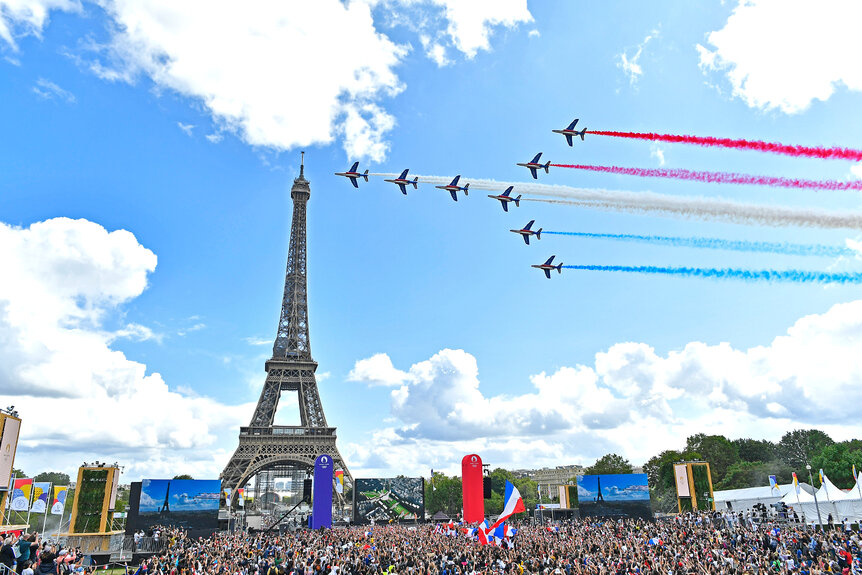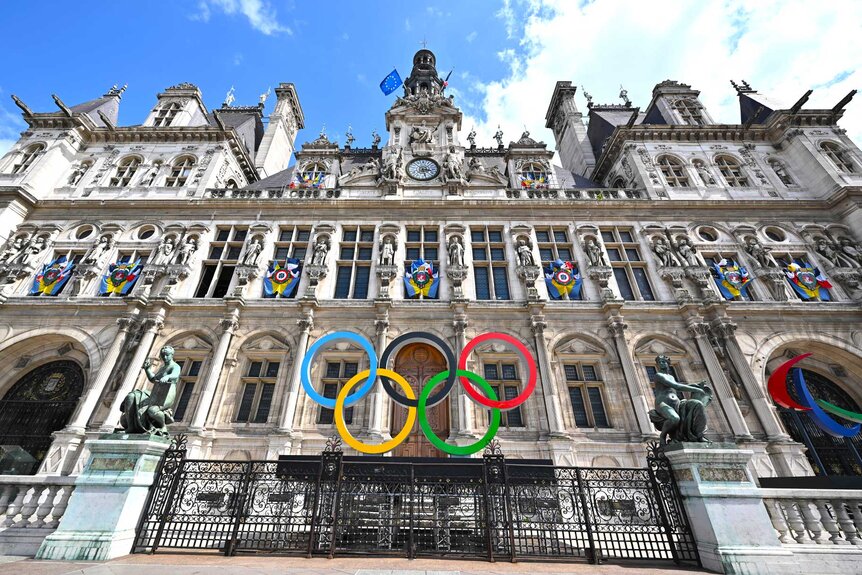Baseball, Softball, and Karate Are No Longer Olympic Events – Here’s Why
The list of now defunct events for the Games in Paris, France includes, among others, America’s National Pastime.

Four score and thousands of years ago, the sports featured in ancient Greece’s first Olympics in 776 BC, as one can imagine, looked a lot different than the athletic competitions forging today’s events. In fact, there was literally only one event for the first 13 Olympic festivals – the stadion or stade race, which was a foot race of 600 feet, according to Penn Museum.
Fast forward to 2024, and 32 different sports have slotted into the program across 329 medal events for the Summer Olympics in Paris, France. From old standbys like archery and cycling to modern BMX freestyle and three-on-three basketball – thanks Ice Cube – the range of competitions is as vast as the names of the mythical Greek gods and goddesses themselves.
And for the first time ever, Olympic competitions will also be held in break dancing, sport climbing, skateboarding and surfing. While those areas of athletic expertise deserve their moment in the sun, other sports have sadly fallen to wayside and will no longer be featured in the iconic 2024 tournament.
Keep reading to take a look at the Olympic events that have come and gone.
RELATED: Snoop Dogg Is Going to the 2024 Paris Olympics: Here's Everything to Know
Baseball
Though baseball was first featured in the Olympic Games of 1904 and later turned into a medal event for the 1992 Olympics Games in Barcelona, Spain, America’s National Pastime seen one too many a curve ball when it comes to consistently being featured in the Olympics. While doping was a deleterious concern in the late 1990’s and early 2000’s, the primary and long-standing issue behind baseball’s tenuous relationship with the Olympic Games lies within scheduling. Out of a typical 162-game Major League Baseball (MLB) season, the summer is a critical period for professional baseball, leading to significant conflicts for players wanting to play ball for their countries in the legendary Games.
Commissioner of the MLB Robert Manfred voiced his concern about the disruptive stress put upon an MLB team if several of its players walked away during the summer to participate in the Olympics.
“No matter how you put the event together, there would be a significant amount of major league players who would be away from their teams,” Manfred stated to Forbes in 2020. “It would alter the competition in our everyday game. I do not believe our owners would support some sort of a break in our season. Continuity is really important to our competition.”
Softball
Like its sibling baseball, softball was nixed from the Olympic Games in Paris. Having been played in the Olympic Games from 1996 to 2008, softball vanished from the programs for the following two Games (2012, 2016) before making its way back onto the summer stage in 2020.
On a granular level, the reason behind softball’s ebb and flow on the Olympic calendar boils down to its popularity because, per the International Olympic Committee’s (IOC) rules, host cities are now allowed to add sports to their program, according to USA Today. If the host city chooses to add a sport, but there's not enough support for an event like softball, the IOC has to support their decision. As the International Olympic Committee’s Sports Director Kit McConnell put it, "If we don’t do it that way, it means that a sport coming in is effectively committed to being in there and that makes the barrier to coming in even higher."
RELATED: 2024 Olympics: How to Attend the Paris Summer Games
Ahead of the Paris Games, Team USA softball pitchers Cat Osterman and Monica Abbott both touched on their collective disappointment in 2021 when the IOC revealed softball would not be featured in 2024.
“Obviously we’ve shown that it’s a competitive sport,” Osterman said to USA Today. “There’s other sports that aren’t as competitive and they’re not voted out.”
“It hurts our sport that it’s going to be potentially another eight years, if not longer,” noted Osterman’s teammate Abbott at the time. “Women thrive in this sport. You can be any age, size, shape, color in this sport. Softball does not discriminate, and I think we deserve to be on the Olympic docket on a consistent basis.”
Karate
Despite making its successful debut at the 2020 Summer Olympic Games in Tokyo, Japan — featuring 80 competitors, allocated between two male and two female divisions (“kata” and “kumite”) — karate got the chop for the Paris Games. The IOC’s decision to remove the combat sport that originated in Okinawa in the 17th century has caught many in the martial arts community off guard, especially given the sport’s popularity in France.
According to Reuters, karate was rejected from past Olympic bids because organizers said “the sport lacked entertainment value and the ability to attract a younger audience.” The latter sentiment is hard to argue against as the “kata” division, where athletes execute a series of “fixed defensive and offensive moves against a virtual opponent,” skewed older with an average age of 30 at the Tokyo Games. While the knock against karate’s entertainment value is subjective, to the untrained eye, the sport’s other division known as “kumite” might look more like a frenetic game of tag than the other combat sports featured in the Games, such as judo, taekwondo, wrestling and boxing.
Though fans of the nixed sports in the 2024 Olympic Games might be disappointed this go round, the official list of sports was recently revealed for the 2028 Games in Los Angeles, California and, while Karate did not make the cut again, baseball and softball will be back in full swing.

















